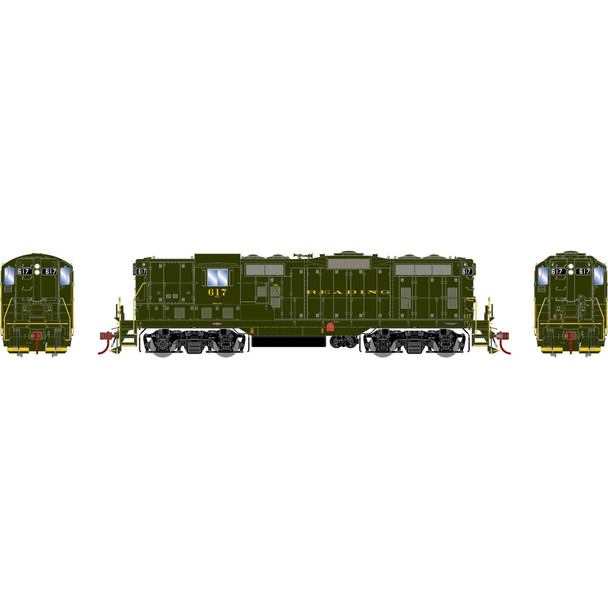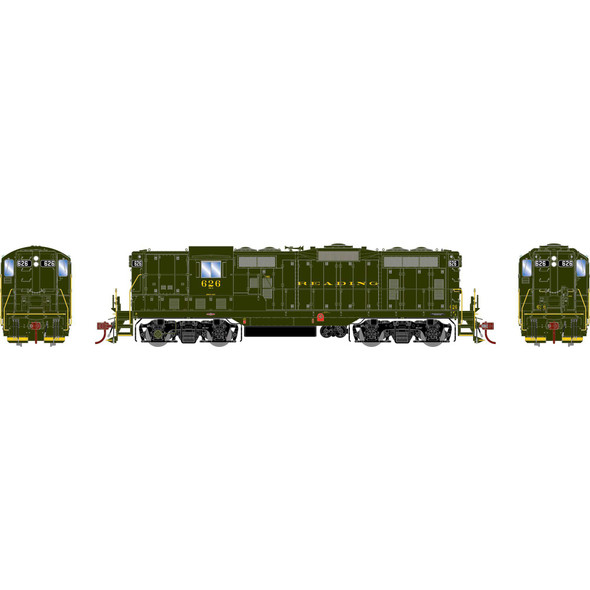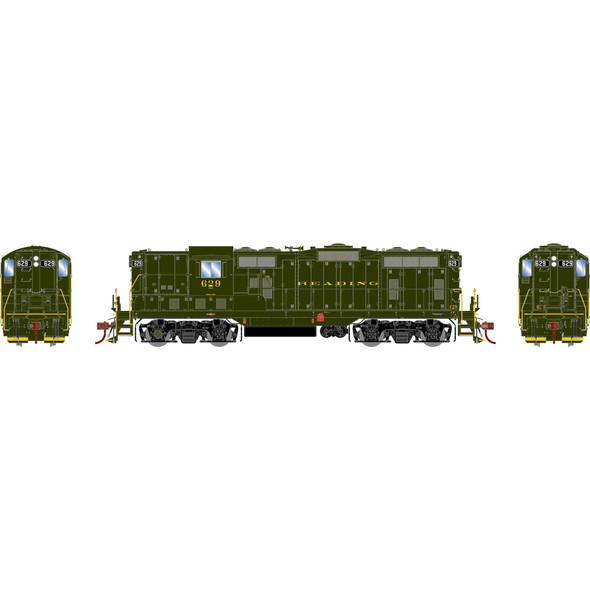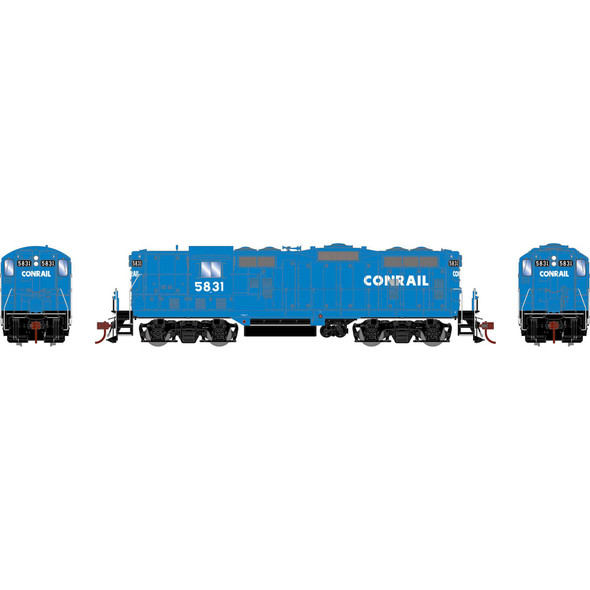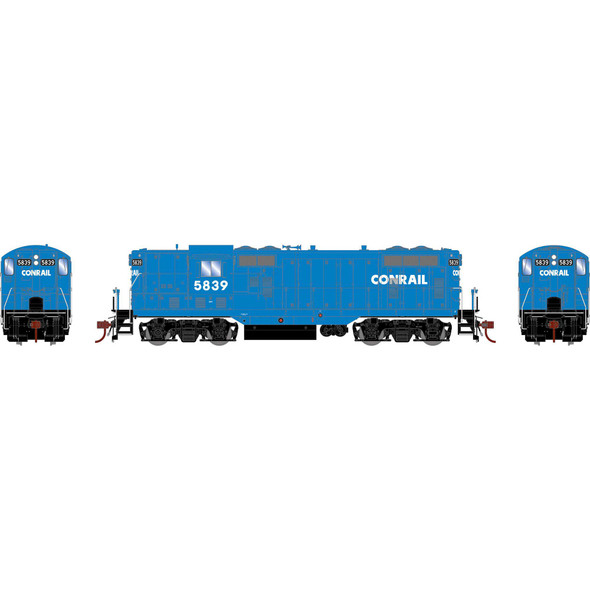Description
RDG FEATURES:
- As-delivered RDG paint scheme- first time in Genesis!
- Unique Reading “L shaped grabs” on short hood
- RDG Rain gutters on cab
- Leslie S3L horn
- Long hood-forward operation
- Different wheel bearing styles per prototype
- Different fuel tank capacities per prototype
At the end of 1952, the Reading’s road freight operations were 65% dieselized. The road continued to push towards full dieselization and ordered 28 GP7s in 1953. These came painted in the carrier’s standard dark green paint scheme with yellow trim. Set up to run long-hood forward, the units had long careers on the Reading, with 17 of them lasting until the 1976 creation of Conrail, and several others finding new homes on other railroads.
GP7 SERIES LOCOMOTIVE FEATURES:
- Coupler cut levers
- Trainline and MU hoses
- Drop steps unless noted
- MU stands
- “Nub” style walkway tread
- Windshield wiper
- Lift rings
- Wire grab irons
- Windshield wipers
- Sander lines
- Bell placement & type per prototype
- Detailed fuel tank with fuel fillers, fuel gauges, breather pipes, and retention tanks
- Blomberg-B trucks with appropriate bearing caps
- Speed recorder unless noted
- See-through cab windows and full cab interior
- Fine-scale Celcon handrails for scale appearance
- Etched metal radiator intake grilles and fan grilles
- Air tanks mounted below sill unless noted
- Body-mounted McHenry® scale knuckle couplers - Kadee® compatible
- DCC-ready features Quick Plug™ plug-and-play technology with 21-pin NEM connector
- Scaled from prototype resources including drawings, field measurements, photographs, and more
- Accurately painted and printed paint schemes
- Genesis driveline with 5-pole skew wound motor, precision machined flywheels, and multi-link drivetrain
- All-wheel drive with precision gears for smooth & quiet operation
- All-wheel electrical pickup provides reliable current flow
- Wheels with RP25 contours operate on all popular brands of track
- LED Lighting for realistic appearance
- Heavy die-cast frame for greater traction and more pulling power
- Packaging securely holds for the model for safe storage
- Minimum radius: 18”
SOUND EQUIPPED MODELS ALSO FEATURE:
- Onboard DCC decoder with SoundTraxx Tsunami2 sound
- Dual cube speakers for optimal sound quality
- Sound units operate in both DC and DCC
- Full DCC functions available when operated in DCC mode
- Engine, horn, and bell sounds work in DC
- All functions NMRA compatible in DCC mode
- Precision slow speed control
PROTOTYPE SPECIFIC INFORMATION:
In 1949, EMD introduced the GP7. The basic design followed most diesel switchers with the addition of a short hood instead of an end-cab. The hoods were also full height to better accommodate the diesel engine and mechanical and electrical components.
In 1954 EMD upgraded the GP7 to become the 1,750 horsepower GP9. Externally, the first GP9s were virtually unchanged from the last GP7s. Later versions would include different louver arrangements and the last ones would come without the frame skirting. The GP9 was available with all of the fuel tank, steam generator, and dynamic brake options as the GP7, including “torpedo tube” air tanks mounted on the roof.
Many railroads chose to rebuild their GP7s and GP9s for continued service. Often times, it was cheaper to do this rather than purchasing brand-new locomotives.
Details
Store Location: |
P# 113 / Aisle 4C |
Scale: |
HO Scale |
Road Name: |
Reading (RDG) |
Version: |
DC Silent |
Road Number: |
617 |
Locomotive Model: |
EMD GP7 |

